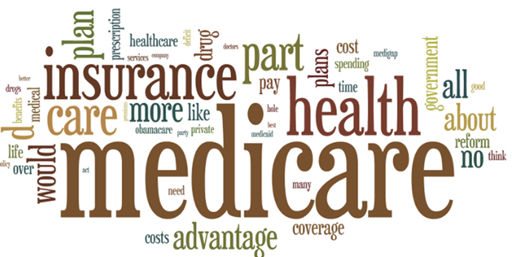President Biden is proposing to extend the solvency of the Medicare national healthcare program by 25 years with an increased tax rate on high income earners. Medicare, of course, is the federal health program which cares for Americans 65 and older.
Over 18% of Americans are covered by Medicare. The Medicare trust fund is set to run out of money in 2028 under current tax and spending levels.
An abbreviated version of Mr. Biden’s proposal unveiled earlier this week showed the tax increase would fund the program into the 2050s by increasing the Medicare tax rate from 3.8% to 5% for households making more than $400,000 a year. The White House defended the tax increase by saying:
“Since Medicare was passed, income and wealth inequality in the United States have increased dramatically. By asking those with the highest incomes to contribute modestly more, we can keep the Medicare program strong for decades to come.”
“High-income people are supposed to pay a 3.8 percent Medicare tax on all of their income, but some high-paid professionals and other wealthy business owners have managed to shield some of their income from tax by claiming it is neither earned income nor investment income,” the White House said.
The White House’s tax increase would apply to both “earned and unearned income” above $400,000. The White House said its plan will also expand Medicare’s negotiating power to lower drug prices, as well as “eliminate cost-sharing for three mental health or other behavioral health visits per year.”
A so-called “billionaire tax” proposed last year would have taxed both income and investment earnings of the extremely wealthy grabbed headlines but failed to make it into final legislation. A 15% minimum tax on corporations and a 1% tax on stock buybacks were passed last year as part of Democrats’ Inflation Reduction Act.
The Medicare proposals are part of the president’s fiscal 2024 budget, which is set to be released this week in full. Those measures, however, are unlikely to make it into law as a GOP-controlled House spars with the White House and Senate over federal spending levels, the rising national debt and a potential debt ceiling crisis this summer.
Both liberals and conservatives agree something has to be done to shore-up Medicare and Social Security over the long-term. Likewise, lawmakers in both parties constantly express support for shoring up these social safety net programs. Yet Democrats and Republicans remain fiercely divided over how to bolster the programs.
Historically, most Democrats have unified behind proposals that would raise new taxes on the wealthy and expand benefits; most Republicans agree new taxes will be necessary but insist cuts in federal spending must also be included. This divide over how to fund spending increases for social programs is nothing new, but lawmakers remain at a standoff.
Whatever direction Congress chooses, experts note that taking action soon would be beneficial. “Your options become more narrow the less time you have to implement changes,” said Gretchen Jacobson, vice president for Medicare at the Commonwealth Fund, a foundation focused on health care policy. “Some of these policy changes take a while to take effect.”
So, the question is: Where do we go from here? The answer is likely nowhere – at least in the short-term. Dealing with how to fund government entitlement programs is one of the most politically-charged issues in Washington.
Dealing with funding of social programs has been characterized as the “Third Rail” of politics: Touch it and you die. But politicians and most American know we have to touch it at some point, and the sooner the better. Still, no one in Washington wants to bite the bullet and be the first to be proactive.
Yet if we continue to kick the can down the road, it will lead to a serious financial crisis at some point.
Our politicians must realize that the solution is some kind of compromise. Such a compromise will have to include a combination of controlling increasing spending on social programs, an increase in the age eligibility to qualify for such benefits and some increases in taxes.
Such a compromise as just described should not be a partisan issue but it is.
I believe most Americans will understand these changes have to be made.
We’ll see what happens.


Sorry, comments are closed for this post.